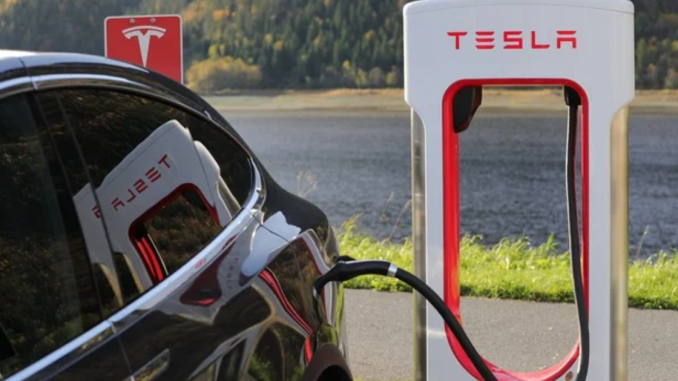
Many huge automotive companies are transitioning to cleaner car manufacturing. Electric vehicles have been the focal point of that conversation, allegedly expelling less energy and leaving behind virtually no carbon footprint. But manufacturing the vehicle from its wheels to its battery could have significant damage to the earth. Consumer skepticism remains around if electric cars are as environmentally friendly as they’re marketed.
What vehicle is worse for the environment, electric cars or gasoline-powered cars? On the surface, electric vehicles create no carbon emissions because they’re not expelling harmful fumes into the atmosphere. Standard vehicles, of course, emit all kinds of pollutants into the earth and the air, which is not suitable for the upkeep of the planet. But critics aren’t scrutinizing an EV’s C02 emissions while running, but mainly its battery construction.
Electric car batteries are primarily made up of lithium. That lithium needs to be extracted from the ground, leading to topsoil damage if mined a particular way. Lithium mines in Chile, Argentina, and Bolivia have seen the mineral extraction’s harmful side. From soil degradation to water shortages, taking a raw mineral out of the ground can damage the land around it. Mining lithium can also pollute the air, another byproduct of mineral extraction that complicates the electric car’s cleaner image.
Another factor complicating the environmentally friendly depiction of EVs is how electricity is collected. The majority of electricity is still retrieved through burning coal and using nature gasses, which result in higher CO2 emissions. This process dampens an electric car’s reputation and should signify to automotive manufacturers that there needs to be more insight into how electricity is accumulated. If gaining electricity has the same process as burning gasoline for a standard car, EVs could possibly leave behind the same carbon footprint.
To find out emission statistics between electric cars and standard vehicles, one can use the Tesla Model 3 to do some calculations. In an average winter in the US, a Tesla would expend 210 grams of CO2 per mile driven. This includes all types of emissions from an EV, combing transportation power, heating, and other emissions. A regular BMW would release about 269 grams of CO2 per mile driven in the same weather conditions. This statistic showcases how Teslas are more environmentally friendly than gas-powered vehicles, but not by a substantial amount.
Besides CO2 emissions coming directly from an electric car’s use, the most pressing issue is how the car’s battery is constructed. Tesla, unfortunately, doesn’t release any information about its battery manufacturing, so much about its environmental impact is inferred. A study done by Circular Energy Storage, which examines many types of motor vehicles, estimated that constructing a Tesla’s battery emits 7,300 kg of CO2 for a 100-kilowatt-hour pack. Because the Tesla Model 3 has a 75 kWh battery pack, that figure drops to around 5,500 kg of CO2.
Though electric cars are a needed transition from gas-powered motor vehicles, marketing them as a carbon-free alternative is only a myth. Constructing an EV’s battery and mining for lithium both pollute the earth in different ways, which are often components left out of the discussion by the automotive industry.
* Article from: tellmebest.com


